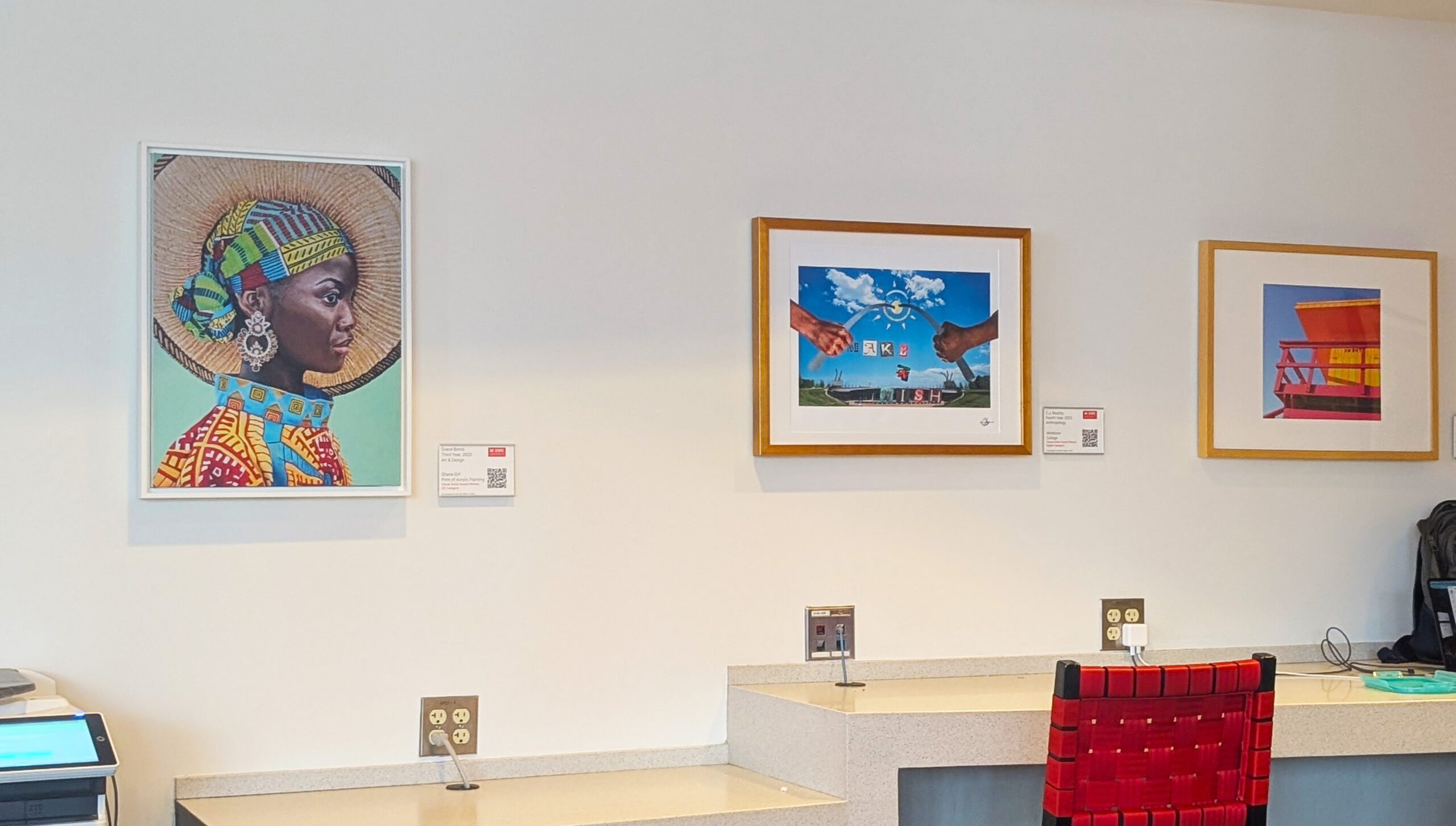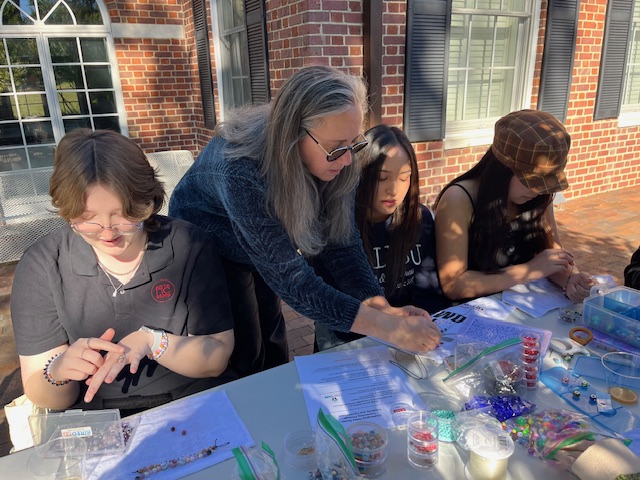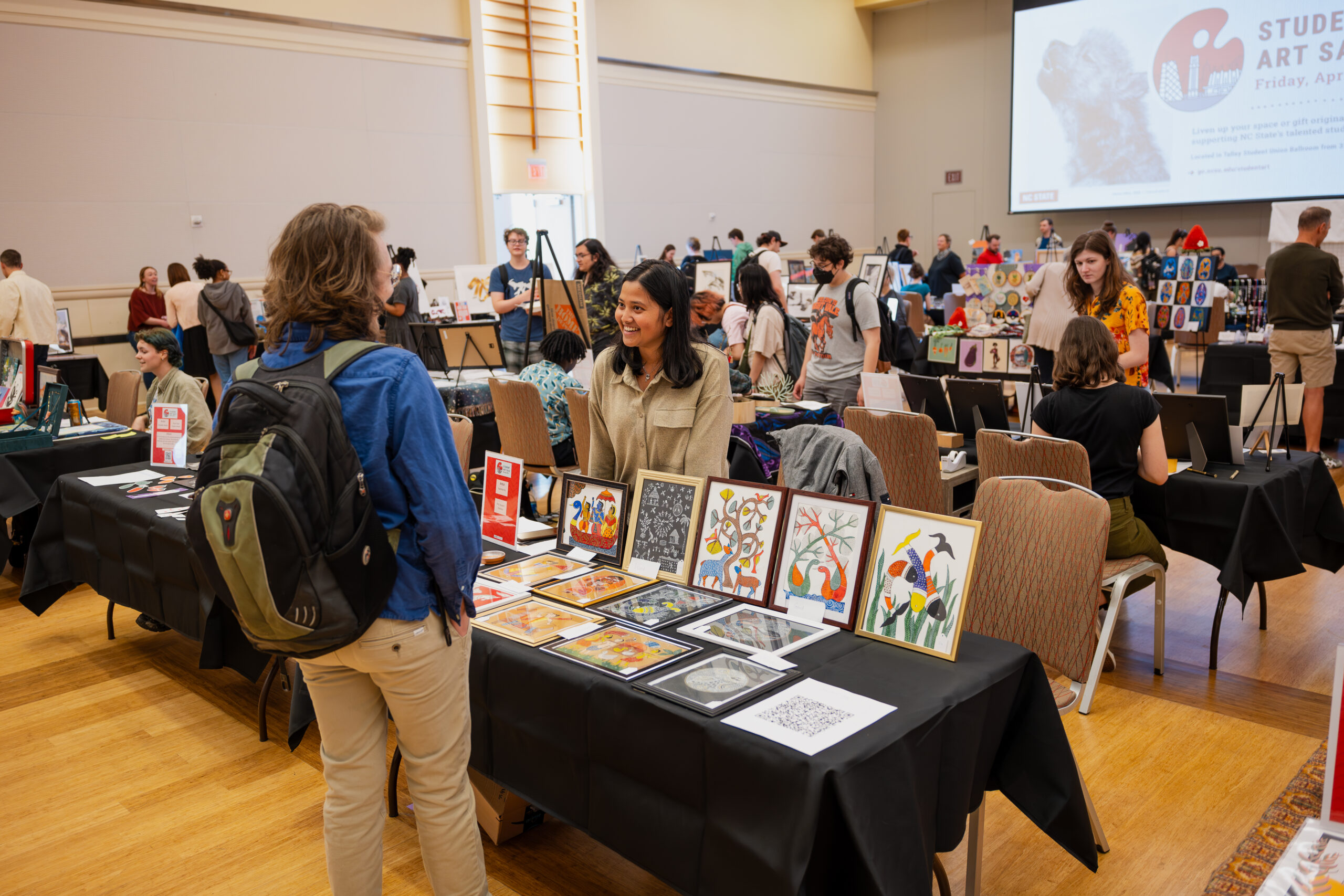Directing Change
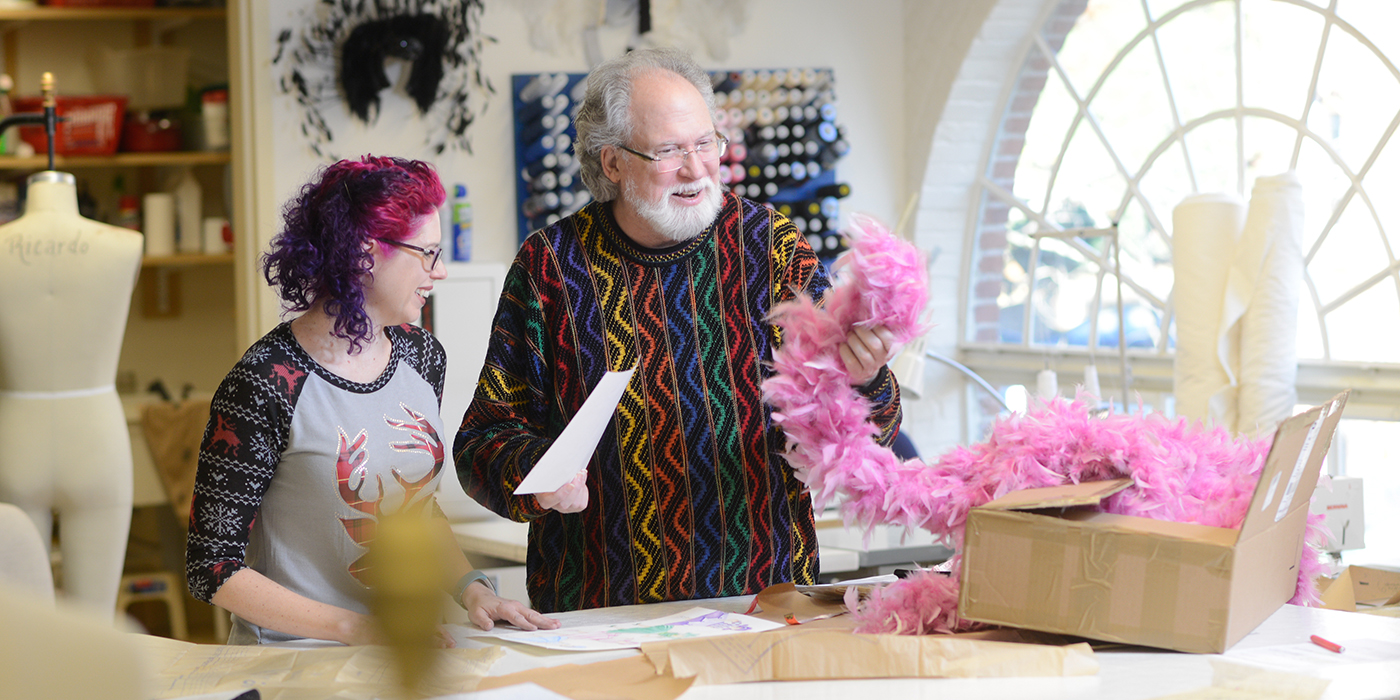
University Theatre’s John McIlwee plans his next act
BY ORLA SWIFT
On a quiet fall evening in University Theatre, John McIlwee unlocks the door to the empty greenroom, pours a glass of lemonade and sits back in a comfortable chair to reflect on his career.
This pre-show waiting room for actors and production staff has contained much angst over the years – fears of forgetting lines, singing off-key, or failing to be in the right place at precisely the right time.
McIlwee has no such trepidation. He has spent 31 years in this beloved building. And as he prepares to retire from his position as University Theatre director in June, he is excited about his next act, despite not knowing exactly what it will be.
“I love change,” he says. “I think it keeps you on your toes. And this is a change for me. This is a different direction for me. And it’s time. I have that wonderful program solidly set in stone here and growing every minute. But you kind of have to leave them wanting more.”
Students, staff and audiences will certainly yearn for more from McIlwee, whose high expectations and encouraging nature have created an atmosphere of achievement, risk-taking and boundless aspirations.
“John has consistently set the highest artistic and professional standards for his staff, and he brought to University Theatre a finely developed aesthetic sensibility that infused every production with which he was connected,” says Alex Miller, vice provost emeritus for Arts NC State, who worked with McIlwee for 29 years, first as his colleague and then for 17 years as his supervisor.
“No challenge seems to faze him,” Miller says, “and he doesn’t let obstacles stop him from achieving his goals. … He is, quite simply, one of the most multi-talented, deeply creative forces I’ve ever known.”
From runway to stage

McIlwee has spent his whole career in theatre, outside of a foray into fashion, an industry he can now say he enjoys more from the outside than the inside. He got hired away from theatre by a fashion design firm after winning a competition he had seen advertised in a magazine and entered hurriedly – using his young daughter’s colored pencils and construction paper, the only tools available to him on deadline. But working on Seventh Avenue lacked what McIlwee cherished most about theatre: intellectual stimulation.
“With the shows, you’re doing a different era, a different world every time, which has always kept me very interested, whether I was an actor or a director or a designer. There was none of that sameness about it,” he says. “But in fashion, you don’t even know who you’re designing for. … The only concern was how many pieces of this one garment could you sell. And after a while that ceased to be interesting to me.”
McIlwee never lost his affection for fashion, weaving it instead into his acclaimed costume design, and vintage couture clothing, accessories and art that he and his wife, Nancy, have collected and exhibited over the decades. He and Nancy also travel to vintage balls, where the 1800s are lovingly revived through music, dance, etiquette and clothing. The two have been best friends and sweethearts since their childhood in West Virginia.
After earning a master’s degree in theatre and an MFA in theatre design, McIlwee worked as a guest artist and on contract at a number of theatres and in a variety of capacities, from acting to directing and costume and set design.
He entertained several permanent job offers along the way, but all would have required that he narrow his focus to one discipline. McIlwee could not imagine specializing in only one area of theatre production, so he remained a vagabond – that is, until NC State beckoned with the kind of multi-faceted role that he had yearned for.
Growth and change
McIlwee initially planned to stay at NC State for two years before moving on to the next irresistible challenge, wherever that might be. But the job never got stale, he says, only more invigorating.
“I’m still as excited now to start the next show – which is Hairspray – as I was the first show I ever started,” he says. “I never burned out. … How can you get bored with the worlds that we go through in theatre? It always seems to me like right over the horizon, in the next show, there’s a sparkling new world that I’m going to have something to do with creating, in whatever way I’m working on the show. And it’s new for me, and it’s new for the audiences, and it’s new for the people I’m working with.”
So McIlwee’s two-year commitment grew to three decades, during which University Theatre’s resources and reputation also grew exponentially, most notably in 2009 with the $16 million state-of-the-art renovation of Frank Thompson Hall, home to University Theatre and NC State’s Crafts Center.
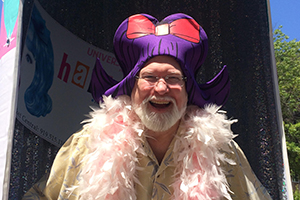
Among the features added in the renovation was a black-box theatre, which McIlwee refers to as the Kennedy Studio Theatre but whose proper name is Kennedy-McIlwee Studio Theatre, a shared title that donor K.D. Kennedy Jr. requested when he was asked to put his own name on the theatre. Kennedy says he and his wife, Sara Lynn, were adamant that McIlwee’s artistic contributions be honored.
“He had meant so much more than anyone else to NCSU Theatre that we felt this would tell how the entire development committee and his fellows truly felt about him and his tireless love,” says Kennedy, who describes McIlwee as a perfectionist but also a “hale and hearty soul” whose fun-loving and inclusive nature turns acquaintances quickly into friends and draws students from across the university back to the theatre semester after semester.
Alex Miller agrees, praising McIlwee’s kindness and generous spirit.
“I have heard dozens and dozens of NC State grads, from every major imaginable, say with warmth and affection that John McIlwee was one of the most important and positive influences on their undergraduate careers,” Miller says. “And that doesn’t surprise me at all. Led by his example, John and his staff have created a sense of purpose, home and community for University Theatre students that is truly remarkable. They feel welcomed, valued, and encouraged to grow and develop, personally and artistically, in an environment that is safe and supportive.
“That is an invaluable gift to these students,” Miller says, “and the resulting closeness, camaraderie, and commitment to their work and to each other’s success is a testament to the powerful influence John has had on these talented young men and women.”
McIlwee often comforts anxious students with the reminder that theatre is not a life-or-death endeavor, and it won’t be a disaster if they miss a cue or bomb a laugh line. But he and his team also set high standards, and they are serious about striving to meet them. That commitment is clear when the curtain rises, according to Rich Holly, NC State’s executive director for the arts.
“That our University Theatre productions are every bit the equal of those at many well-known theatre schools is a source of constant amazement to our colleagues who teach at those schools, and an immense sense of pride for John and all who work in University Theatre,” Holly says. “John is a treasure, and the entire Triangle theatre community is richer for John being a dedicated part of it.”
Major achievements
McIlwee confesses to some initial trepidation about working at NC State. The university doesn’t offer a theatre major the way many other universities do, though students may now minor in theatre. He wondered at first whether students with such divergent career goals and academic demands could bring the same commitment to a production as a theatre major would. But the students quickly proved those fears unfounded, impressively reflecting the university’s mission to strive for new ways to “think and do.”
[pullquote color=”wolfpackred” align=”aligncenter”]I think we’ve proven that we’re sort of a nesting place for people who don’t want to give up that side of their brain. They’re using both sides, one for their major and one to participate in the arts. That is what makes the arts exciting at NC State. They’re for everyone.[/pullquote]
“You see these people with amazingly complicated majors, some of them with triple majors, and they come and give up their time to do a show, and they’re just incredibly good,” McIlwee says. “It was one good student after another in all the years that I’ve been here. Every time I’ve thought, ‘Oh, dear, this group is graduating and we’re going to be in a pickle for a while,’ other good students show up the next year.
“So it’s been one right after another and the program has continued to build, thanks to the administration,” he says. “I think we’ve proven that we’re sort of a nesting place for people who don’t want to give up that side of their brain. They’re using both sides, one for their major and one to participate in the arts. That is what makes the arts exciting at NC State. They’re for everyone.”
Those arts experiences impact the students well beyond graduation, says Tom Stafford, former vice chancellor for Student Affairs, who was among the administrators who hired McIlwee and supported the theatre’s growth.
“The thousands of students who have been directed, advised and motivated by John to participate in theatre will pursue non-theatre careers, but their love and appreciation of theatre and other arts will continue throughout their lives,” he says. “And they will influence others in their families and communities. This is the extraordinary legacy that John McIlwee will leave at NC State and the communities outside the campus.”
McIlwee’s impact on students is greater still because he is loath to turn away students who are eager to play a role – even when there are no roles left.
“I usually over-cast shows because I’m trying to get as many students in as I possibly can,” he says. “And everybody makes fun of me and screams and yells, ‘How many costumes can you expect to make?’ I put 20 more cast members in Fiddler than it called for. I said, ‘I’m getting better – I only put 11 more in Secret Garden this year than it called for.’
“But we have to give these students opportunities,” he says. “And if it means that I over-cast on these spectacle shows to get them into a production to get started with us, then I think that’s what we should do. I think we should make as many opportunities as we possibly can. That’s what we’re here for, for them. If they go away, then what’s our point?”
McIlwee adheres to a similar philosophy with his staff. He urges them to reach beyond their established talents and take risks in different areas – a designer directing, for example. He also strives to foster a creative environment in which everyone is open to input, and all ideas merit consideration, regardless of who brings what expertise to the table.
“This staff is so talented and so collaborative that they make anything I do, from directing to designing and even acting, a joy every day,” he says. “Their minds and their creativeness and their ingenuity and their willingness to talk about what we’re creating make it exciting.”
What next?
McIlwee doesn’t intend to leave theatre when he retires. He is considering writing a theatre textbook. And he plans to remain in the Triangle, where his friends are, where the arts scene is vibrant, and where colleagues such as Theatre in the Park Artistic and Executive Director Ira David Wood III are eager to collaborate with him.
He hopes to return to University Theatre, too. If he’s not backstage or on stage, he says, he will most assuredly be in the audience, watching the students, the staff and theatre itself continue to evolve.
“I’ve never had a moment of regret that I’ve stayed here and watched the program grow, because it certainly has been a delight every year to see the changes,” he says. “And all of the people who have been on staff and gone, they had a hand in making the program stronger with what they had to offer.
“I was very lucky to arrive at the right time, and very lucky to have the interest and good will of every administration, and very lucky to have such wonderful staff to work with. I just think I’m a lucky guy.”
Orla Swift was a theatre critic and arts reporter at The News & Observer and other newspapers for 20 years. She is now director of marketing and communications at Sarah P. Duke Gardens.
This article was originally published in the Spring 2018 issue of #creativestate, the official magazine of Arts NC State.
Celebrate John!
Raise the impact of the John C. McIlwee Theatre Endowment
Few people have impacted the arts at NC State like John McIlwee. His generosity and relentless commitment as director of University Theatre changed the lives of countless students, and it showed in every theatre performance. Now you can honor John and show your commitment to University Theatre by making a gift to the John C. McIlwee Theatre Endowment. Your support will set the stage for future generations of University Theatre students, staff, and patrons.
- Categories:
